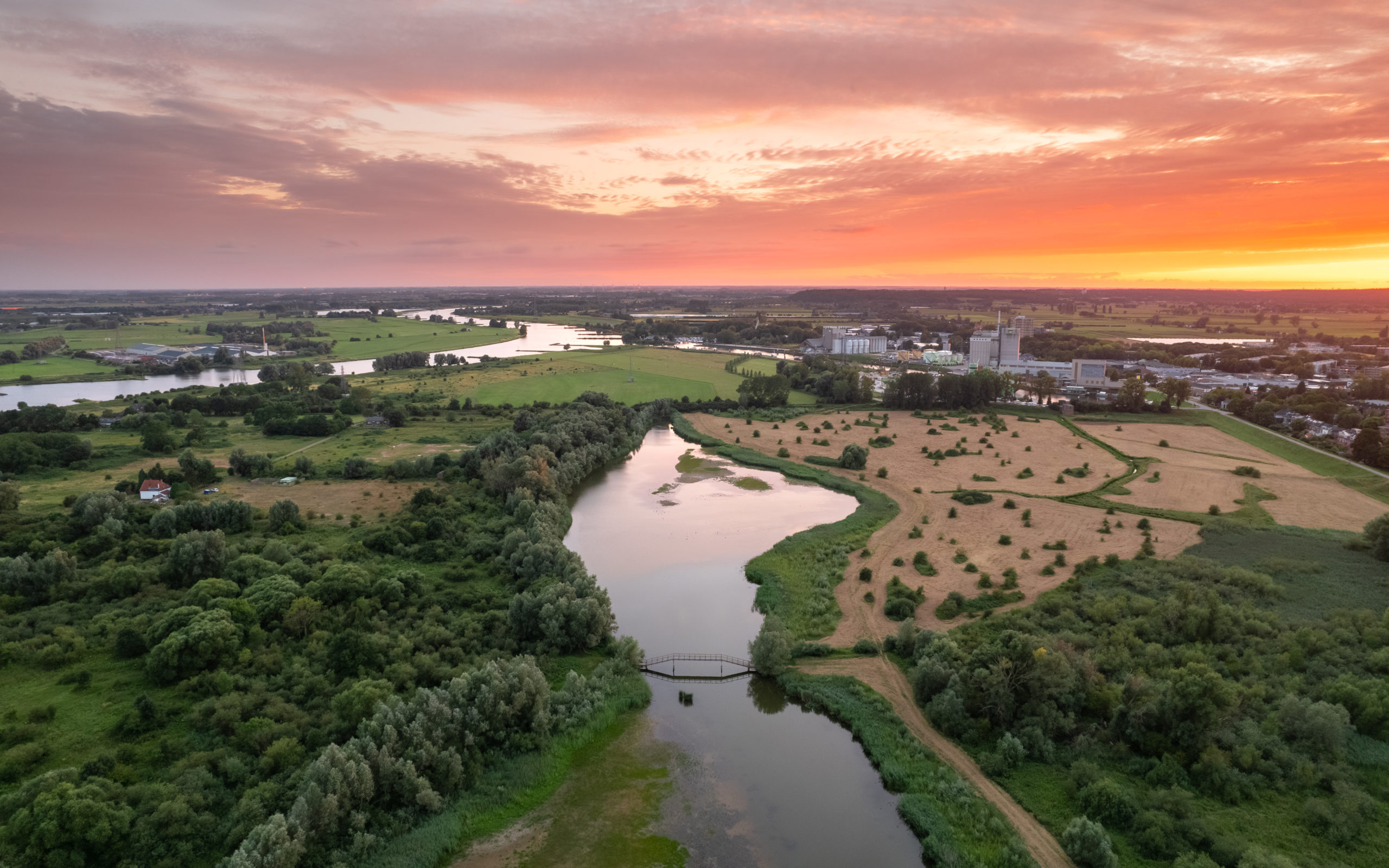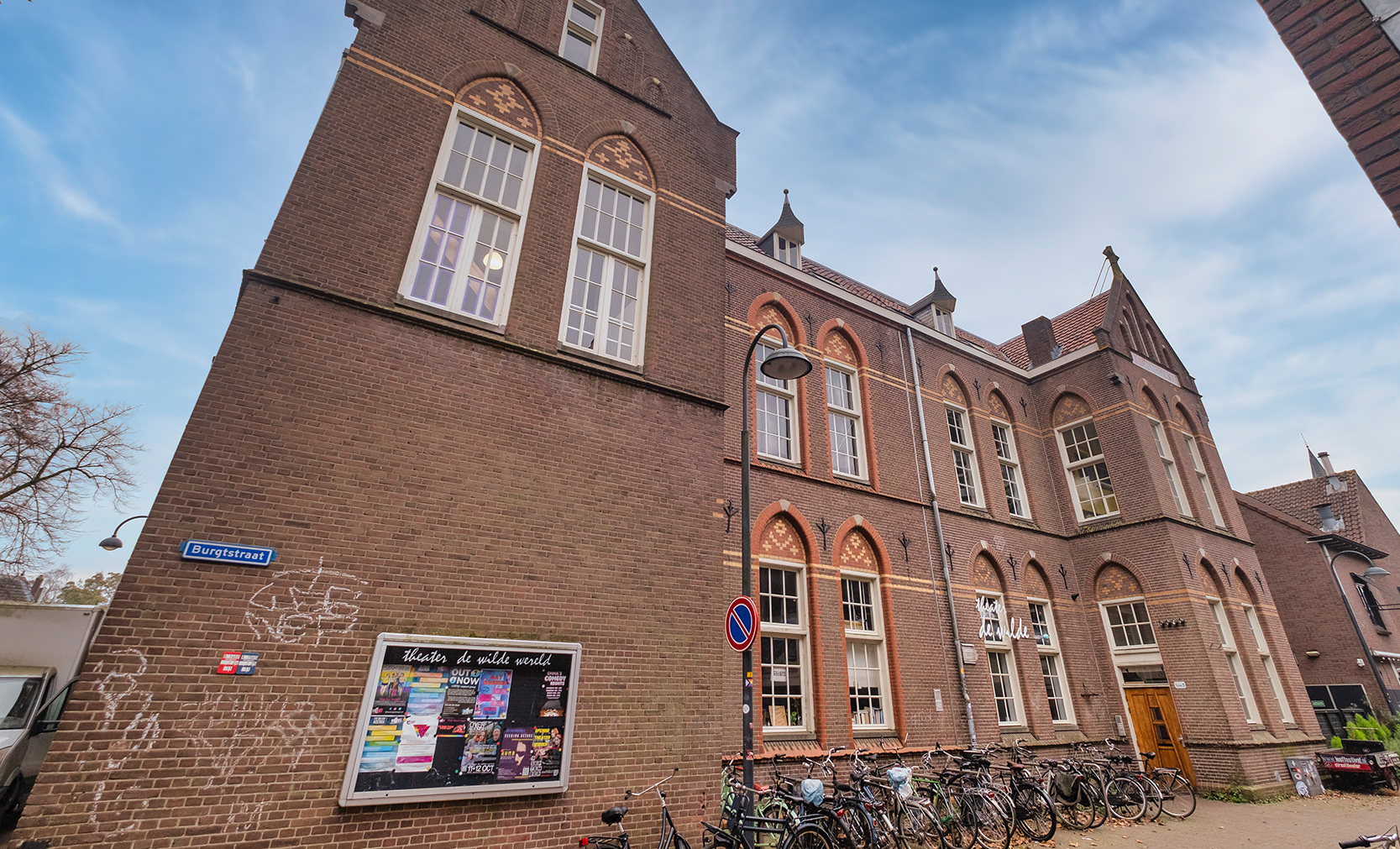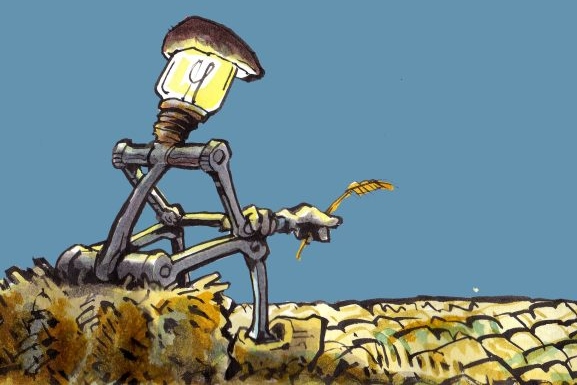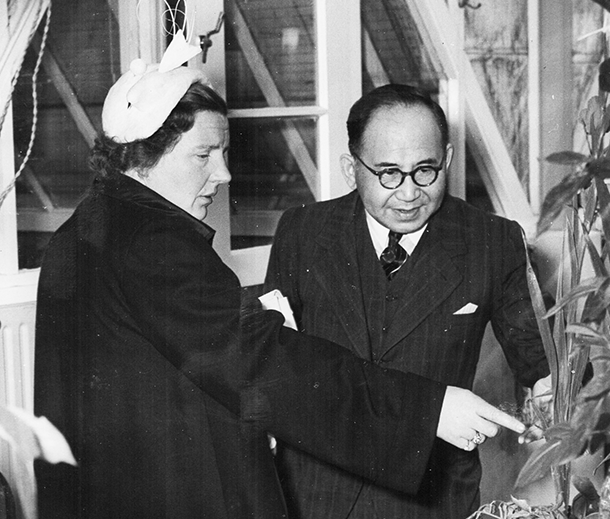Landscapes do not simply emerge. They result from struggles. The struggle of man against nature, but also that of humans among themselves. That is the topic on which four lectures organised by the public library in collaboration with Museum De Casteelse Poort focus. The exhibition is called Imagining the Landscape and has been open for several months.
Former WUR teacher of rural sociology Jan Schakel is to kick off a series of lectures on Tuesday, 31 January. His address will focus on the experimental plots on the premises of the former Microbiology building on the Wageningse Berg. The experimental plots are currently being used as vegetable gardens. Schakel chairs the growers association, which succeeded in conserving most of this scientific heritage.
In the nick of time
The series will continue on 28 February with a presentation by former WUR employee Beatrice Kesler on conserving the Wageningen floodplains. In the sixties of the last century, large-scale housing development projects were launched. The construction was prevented in the nick of time, thanks in large part to the efforts of the former WUR Urban Planning group. Kesler was closely involved in these efforts.
Nature in the Binnenveld is the topic of the third lecture on 28 March. A citizen’s initiative has led to the construction of the Binnenveldse Hooilanden, a nature reserve. Rogeir van der Mast discusses the De Lieskamp estate near the Noordwest residential area. He manages the estate.
The final lecture in the series is to be delivered by former alderman Rik Eweg on 25 April. He will discuss new forms of political participation in landscape development. Eweg is a lecturer of Regionally-Focused Transitions towards Circular Agriculture at Van Hall Larenstein university college. He focuses mainly on the Wageningse Eng, the area east of the city.
Experimental plots
The exhibition in the museum focuses on, among other things, the ‘university landscape’ in the city, the many experimental plots and research stations. The large variety of landscapes surrounding the city was an important reason to concentrate higher agricultural education in the Netherlands in Wageningen. The exhibition remains open until 2 April.

 Photo DroneWageningen
Photo DroneWageningen 

